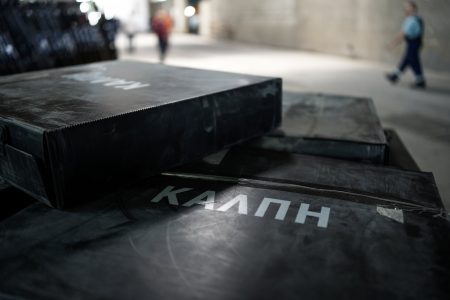For fear of their foreclosed properties being auctioned off, those who have strategically avoided paying their expired debt are rushing to banks to refinance it years later.
Based on available data, one in three clients with overdue loans seeks to make an arrangement with the bank for repayment.
That would suggest that the auctions are serving as a lever of pressure for those who were able to pay and strategically did not, and as a boost to banks, which urgently must reduce their non-performing loans.
Of the 332 auctions of foreclosed properties that were scheduled for yesterday, 96 were put off, after the debtors made an arrangement with their banks, and nine were canceled following a judicial ruling.
Every day, the electronic platform eauction.gr posts new auctions of homes, building lots, offices, rural land, factories, and hotels.
At the moment, 87 percent of notaries are conducting auctions, and the first electronic auctions in the large cities of Thessaloniki and Patras are going forward.
Over 280 notaries have registered on the electronic platform, while applications are pending from another 400.
Other means used by banks to reduce non-performing exposures include the refinancing of bad loans to bring them up to date, the sale of non-performing loans to foreign investment funds (mainly those of small-and-medium-sized businesses and consumer loans), and writing off certain loans from their books.
Greek banks have about 100bn euros in non-performing exposures, and the aim is to reduce that to 64bn euros by the end of 2019.





